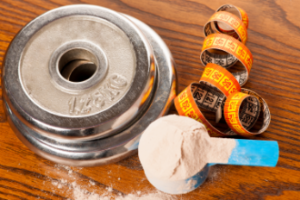We’ve all probably heard this before ‘chew your food 32 times.’
Chewing is but a boring technicality to this whole piece. Slow eating is really about engaging with our food, savoring the flavours and textures and an opportunity to build on a deep soulful relationship with our food and body.
“Food is a love note from God. Its letters are written by the rays of the sun. It says I love you and I shall take care of you and sustain you with the offerings of my earth. If we take time to read the love letter, by chewing carefully and feeling the messages that are stored in food by the sun, earth, wind, water, and even by those who have grown, harvested, and prepared the food, its assimilation takes on a whole new meaning. This is a specific way of receiving God’s grace, a holy sacrament to be experienced slowly, carefully, and consciously.” Dr. Gabriel Cousens, Conscious Eating
These words by Dr. Gabriel Cousens describe exactly what I mean and feel.
The first time I heard about or practiced slow conscious eating was at a Wellness workshop in Auroville way back in 2011.
I honestly thought this lady has gone cuckoo. Seriously who has the time?
As a busy screen writer in Mumbai, my breakfast was served to me while I was glued to my screen in the thick of creating plot twists.
Mid day fruit served as a newspaper reading break.
Lunch was my little telly time, and dinner was usually a socializing affair with friends.
I couldn’t possibly find the time to do all these things separately, besides who wastes time – just eating.
Years down the line, this somehow stuck to me, and I slowly got into the habit of eating slowly, as a way to rebuild my connection to it.
I really began to enjoy it, and had many revelations.
For example a processed junky food just didn’t taste like anything after a few chews, in fact there seemed to be no substance left in it to chew on. Whereas real whole foods, such fruits and vegetables (with their skin) and whole grains, actually took up a lot more chewing power and revealed their subtle tastes, textures and juice over the course of the chew.
Rotis actually begin to taste sweet in the mouth when I chewed them long enough. The apple bite felt more refreshing, juicy and more satisfying with each chew.
Peppers tasted sweeter.
A fried pakoda disintegrated rather quickly in the mouth and tasted like melted cardboard (I’m not kidding about this. Try it for yourself J
This was incredible practice. I could feel a build up of an enhanced state of sensitivity in my mouth and an awakening of body wisdom from deep slumber. Each experience felt like meditation.
I got so interested in the nuances of my food, I’d miss this experience when socializing or eating on the go. It didn’t feel fair to the food. In fact I wouldn’t even feel like I’ve eaten and would find myself unsatisfied ever after eating a lot.
I also noticed a return of digestive discomfort and bloating after those unmindful eating episodes. Numerous clients who got into eating this way have experienced a lowering of blood sugar levels, blood pressure and even anxiety.
Here’s some good news!
If you don’t change a thing about what you eat, and just change your eating speed – it can have a far reaching impact on your digestion, assimilation, gut health, weight, anxiety, blood sugar levels, blood pressure and hormone health.
Yup, eating slowly or chewing every morsel is that powerful an act.
Not easy at all – but powerful yes.
Its implications are at a physical, physiological and psychological level.
Let me break this down to help you understand how chewing slow impacts digestion and gut health.
- Digestion begins in our mouth. Our saliva actually contains several different types of enzymes that begin the breakdown and digestion process of our food in our mouth itself. This obviously means less work to the stomach to produce acid and enzymes and on the rest of the digestive system – hence better digestion.
By chewing more, the food morsels break down into tinier bits and more surface area gets exposed to the saliva to be able to digest the morsel better.
- Chewing allows the brain the time to decipher what kind of food is coming in and hence better prepares the rest of our digestive system for that food. So overall better digestion, less chances of digestive stress, bloating, indigestion etc.
- Slower chewing actually leads to better satisfaction and this is related to something called cephalic phase digestion response (CPDR ) or the head phase of our digestion.
Our brain takes about 20 minutes to respond to the head phase of our digestion and signal back to our body about how full it actually is.
By eating fast or gulping down our food, we miss this response window, and may not feel satisfied despite eating a big amount of food and are likely to end up overeating!
Notice when you’re watching a movie or working and eating on the side or up overeating or not feeling satisfied despite eating the same quantity. This is because our brain literally did not register the food and hence we never got the feeling of satisfaction.
Now let’s understand what happens when we chew our food real fast. In history, the only time we humans ate fast was when there was a real threat or danger to them. Our nervous system is still stuck in that era and thus perceives our eating fast as a signal that we are under some threat.
So – when we eat fast (read threat) our nervous system goes into fight or flight or – what we knows as sympathetic nervous system.
It shuts down digestion (indigestion or digestive distress), deregulates our appetite (who needs to take care of digesting food appetite when you have a lion in your face, right?), redirects all the blood supply and energy to our limbs (a rise in blood sugar and blood pressure) and pumps up our adrenals to secret more cortisol which is a stress hormone.
If we eat this way once in a while, the body will come back to normal soon, but if we eat fast meal after meal, this can contribute to chronic side effects such as digestive distress, appetite deregulation, weight issues, over eating, in some cases – under eating, anxiety, hormone imbalances, perpetually high blood sugar levels and blood pressure.
Who would have thought, that a simple act of chewing (slow or fast) can have such far reaching implications.
But as they say – how you eat is how you live. How you do anything is how you do everything!
So if you are slow eater – congratulations!
If you are a fast eater, good for you too, because you can now practice becoming a slow eater.
Here are some of my best practices that helped me and many of my clients master the art of slowing down with their food.
- Sit down and eat. Sitting down immediately relaxes us as opposed to standing and eating. We will naturally tend to also eat faster when we are not relaxed and slow down when we are relaxed. This also means, one has to avoid eating on the go, eating while driving etc.
- Take 5 deep breaths – When we come to the table to have our meal, we may be bringing in a lot of baggage with us of what has been happening in our life and day. Thoughts of the tasks to finish, that really important presentation, or the kids to be picked up from school, a conversation with our C.A. or literally anything else. So we may already be in fight/flight mode. Taking 5 deep breaths will allow us to calm down and bring our nervous system back into a relaxed state.
Sometimes these 5 breaths may help you realize how much of stress you were in, and you may need a few more breaths to feel totally relaxed and in your body.
- Say a prayer of gratitude – This is another powerful way to bring our nervous system into relax and digest state because the feeling of gratitude in our heart is like a balm or an antidote to feelings of stress and threat.
Gratitude that you have food on your plate today, people who lovingly cooked it, people who grew it, all the elements that went into it – earth, water, sun, air and space. Lastly gratitude to your body that will digest it and nourish you with it.
- Involve all your senses – they say we eat with our eyes and nose before we eat with our mouth. It is seriously worth it to plate our food well and make it look more appetizing. A plate that looks beautiful lights us up – and that ensures we are feeling relaxed and happy – and are more likely to slow down with our food.
It is worth it to consider the energy of the place we are eating in as well. It should preferably be clutter free, not very busy and noisy and feel like you can relax there.
- Keep distractions away. By distractions I mean phone, laptop, tablets and television. This is a big one for a lot of people, and therefore needs a lot of conscious disciplining. I know families that keep their dining as a gadget free zone and use the time to catch up with each other.
If you are too hooked on to this habit, start small. Perhaps focus on making one meal gadget free and really start to bring your attention on the food, learning to enjoy and savour it. Trust me at some point you will enjoy your date with the food so much and gain so much satiety and health out of it that it will feel absolutely worth it and you will prefer to keep the distractions away despite their addictive pull.
- Eat with a small spoon or better still, with your hands. A small spoon or eating with hand obviously means small bites which automatically slow down the eating process. And eating with hand is bringing another of our senses (the skin on our finger tips) into the equation thus making the process a lot more felt and enjoyable.
- Focus your attention on some aspect of the food in your mouth. Sometimes (mostly), despite our best intentions it will get boring and difficult. At such a time, you want to zoon in on some aspect of what you are eating. It could be the texture of the chapatti you’re having, or the juice being drawn out on each bite from that pineapple, or how the spices in your food are tingling in your mouth each time you chew.
Find any one tiny detail and keep focusing on it and that will help you slow down.
Have you tried slowing down with your food ? How has your experience been? And where do you find it difficult ?
 EAT PLANTS
EAT PLANTS MOVE DAILY
MOVE DAILY SLEEP MORE
SLEEP MORE



